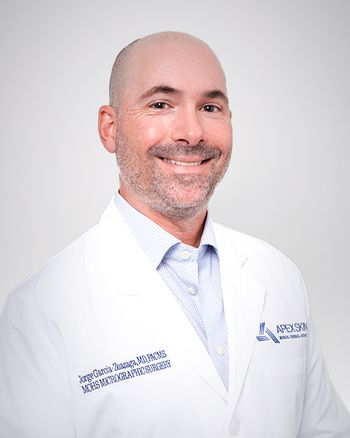
- Dermatology Times, August 2022 (Vol. 43. No. 8)
- Volume 43
- Issue 8
Protecting a Physician’s Most Valuable Asset: Insurance Basics for Young Dermatologists
Jason M. O'Dell, MS, CWM, and Michael Lewellen, CFP, discuss what young dermatologists need to know about insurance basics to protect themselves.
The most valuable asset for nearly every dermatologist is their ability to practice their profession, as the future income stream from this asset is significant and quantifiable. To protect this asset for themselves and for others dependent on them, dermatologists rely on disability and life insurance as fundamental “asset protectors.” Young dermatologists should secure these tools early in their careers, and established physicians should regularly review existing insurance policies to ensure they are maintaining necessary levels of protection.
In part 1 of this 2-part article, we will focus on the basics physicians need to know about disability insurance, and we will cover life insurance in part 2.
THE NEED FOR DISABILITY INSURANCE
The disability of the family breadwinner can be more financially devastating to a family than premature death. With many disability cases, the medical care alone can cost hundreds of dollars per day, increasing expenses significantly while income is reduced or eliminated.
EMPLOYER-PROVIDED COVERAGE OFTEN INADEQUATE
If you are an employee of a university, hospital, or large dermatology practice, your employer may provide long-term disability coverage. Group disability, however, often limits either the term of the coverage or the amount of benefits paid. For instance, benefits may last only a few years or benefit payments may represent only a small part of your annual compensation. Since this is most commonly an employer-paid benefit, the money received during your disability will be income taxable to you. Additionally, employer or group disability coverage can be terminated at any time and for any reason, leaving you without coverage.
GETTING THE BEST INSURANCE COVERAGE FOR THE MONEY: INDIVIDUAL DISABILITY
Because many physicians do not have access to group disability insurance and group coverage can prove lacking if the need arises, all dermatologists should consider individual disability insurance to protect the value of their future incomes. When evaluating options for an individual disability insurance policy, it is important to work with a reputable and experienced insurance adviser, who can help you with answers to the following questions:
1. WHAT IS THE BENEFIT AMOUNT?
Most policies are capped at a benefit amount that equals 60% of income. You must ask yourself how much money your family would need if you became disabled.
2. WHAT IS THE WAITING PERIOD (ELIMINATION PERIOD)?
This is the period of time that you must be disabled before the insurance company will pay disability benefits. The longer the waiting period before benefits begin, the lower your premium will be. Essentially, the waiting period serves as a deductible relative to time—you cover your expenses for the waiting period, then the insurance company steps in from that point forward.
3. HOW LONG WILL COVERAGE LAST?
It’s a good idea to get a benefit period of coverage that lasts until Social Security benefit payments begin, sometime between aged 62 and 70 years. Unless you are still too young to qualify for Social Security, a policy that provides lifetime benefits, at costly premiums, is generally not worth the added expense.
4. WHAT IS THE DEFINITION OF DISABILITY?
Definitions vary from insurance company to insurance company, and even from policy to policy within the same company. The definition of disability used for a policy is of the utmost importance. The main categories are own-occupation, any-occupation, and loss of income. The own-occupation policies, which pay a benefit if you can’t continue your own occupation (even if you can and do work in another occupation after the disability), are the most comprehensive.
5. DOES THE POLICY OFFER PARTIAL BENEFITS?
If you can work only part-time instead of your previous full-time hours, will you receive benefits? Unless your policy states that you are entitled to partial benefits, you won’t receive anything unless you are totally unable to work. Also, are extended partial benefits paid if you go back to work and suffer a reduction in income because you cannot keep up the same rigorous schedule you had before you became disabled?
6. IS BUSINESS OVERHEAD EXPENSE COVERED?
If you are a practice owner, whether you have $10,000 or $20,000 of monthly disability benefits, you likely don’t have enough to cover your lost income plus the costs of running the practice.
7. IS IT NONCANCELABLE OR GUARANTEED RENEWABLE?
The difference between these terms is very important. If a policy is noncancelable, you will pay a fixed premium throughout the contract term and your premium will not go up for the term of the contract. If it is guaranteed renewable, the policy cannot be canceled but your premiums could go up. Ideally you want a policy that is both noncancel-able and guaranteed renewable.
8. HOW FINANCIALLY STABLE IS THE INSURANCE COMPANY?
Before buying a policy, check the financial soundness of your insurer.
CONCLUSION
The value of a dermatologist’s future income is a valuable asset that needs protection, both for the physician and for dependents who rely on that income. Dermatologists rely on disability and life insurance as fundamental protectors of this asset and should purchase these policies early in their careers. Here, in part 1 of this 2-part article, we focused on what doctors need to know about disability insurance. We will cover life insurance in part 2.
Disclosure:
Jason O’Dell is a financial consultant, insurance specialist, and partner in the wealth management firm OJM Group (www.ojmgroup.com) in Cincinnati, Ohio. Michael Lewellen is partner and director of financial planning at OJM Group.
OJM Group, LLC. (“OJM”) is an SEC registered investment adviser with its principal place of practice in the State of Ohio. SEC registration does not constitute an endorsement of OJM by the SEC nor does it indicate that OJM has attained a particular level of skill or ability. OJM and its representatives are in compliance with the current notice filing and registration requirements imposed upon registered investment advisers by those states in which OJM maintains clients. OJM may only transact practice in those states in which it is registered or qualifies for an exemption or exclusion from registration requirements. For information pertaining to the registration status of OJM, please contact OJM or refer to the Investment Adviser Public Disclosure web site www.adviserinfo.sec.gov.
For additional information about OJM, including fees and services, send for our disclosure brochure as set forth on Form ADV using the contact information herein. Please read the disclosure statement carefully before you invest or send money.
This article contains general information that is not suitable for everyone. The information contained herein should not be construed as personalized legal or tax advice, or as a recommendation of any particular security or strategy. There is no guarantee that the views and opinions expressed in this article will be appropriate for your particular circumstances. Tax law changes frequently, accordingly information presented herein is subject to change without notice. You should seek professional tax and legal advice before implementing any strategy discussed herein.
Wealth Planning for the Modern Physician and Wealth Management Made Simple are available free in print or by e-book. Download by texting DERM to 844-418-1212.
Articles in this issue
over 3 years ago
Diagnostic Approaches for Melasma and Vitiligoover 3 years ago
When to Progress to Systemic Therapyover 3 years ago
Focusing on Feetover 3 years ago
He Is my Covering Physician. Why Am I Being Sued?over 3 years ago
Mouse Model May Shed Light on APC mutations in brain metastasesover 3 years ago
FDA Approves Roflumilast Cream 0.3% for Plaque Psoriasisover 3 years ago
How to Tackle Challenging Cases in DermatologyNewsletter
Like what you’re reading? Subscribe to Dermatology Times for weekly updates on therapies, innovations, and real-world practice tips.









